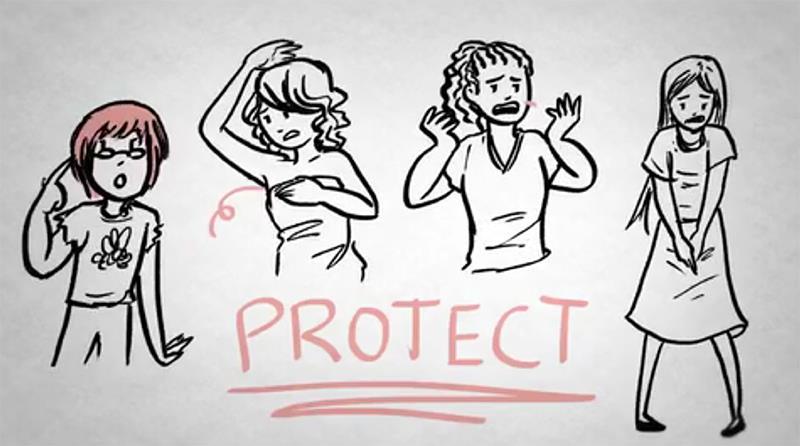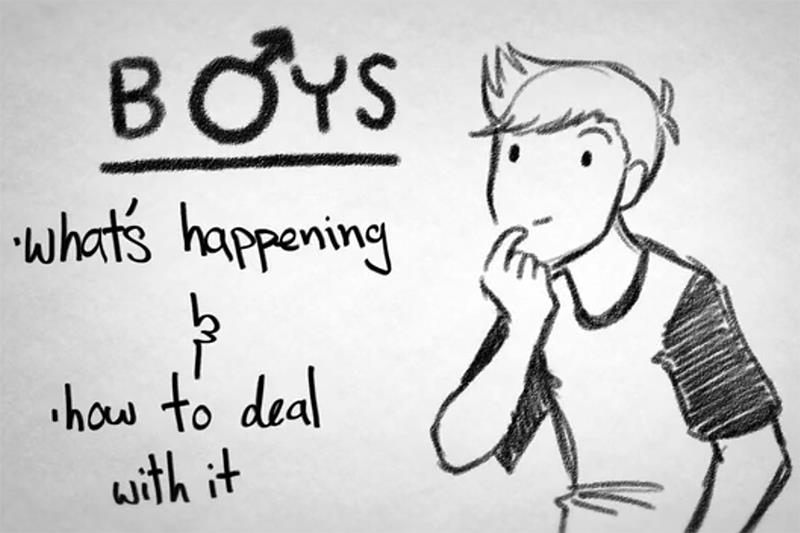Teaching puberty in a school setting can fill some teachers with dread, especially knowing you may be the only adult who talks to them about it.
However, there are strategies, techniques and resources, including Public Health England’s Rise Above for Schools puberty lesson plan, that can make it much easier to approach and enable students to feel safe to ask and answer questions about sensitive issues.
Here are some of the tips I have picked up during my 16 years of teaching in schools to help you broach this topic with confidence and consideration, and help students to navigate the physical and emotional changes of puberty and the relationships they are dealing with.
Get your facts and experiences straight
I once observed a male science teacher, who had been tasked with teaching menstruation to a mixed gender year 7 class. He explained his intended approach to me: “The class have been studying erupting cells anyway, so menstruation will lead on from there, that’s where I’ll start with them.”
I gently asked him to think how an 11-year-old girl might feel if she were to go to his lesson and be told that something was about to “erupt” inside her. My colleague hadn’t thought about it that way, as he has never had a period himself. Most teachers’ knowledge of puberty is based on their own experiences, and yet many are expected to teach the opposite sex as well as their own.
The importance of puberty education for boys – focusing on both bodily and emotional changes – can sometimes be overlooked with more of a focus put on girls and their experiences of menstruation. The easiest way around this is to gain the support of a colleague – consider a team-teach lesson, or an “expert swap”. It can be reassuring to have a colleague ready to jump in and tackle the nuances when questions start flying.

You don’t have to know everything
Students will have a lot of questions relating to their personal situations and experiences with their own bodies and relationships. There may well be questions outside of your own experience, and you may not have all the answers. Rather than guessing, a useful strategy is to have a question box.
During the lesson, or weeks, students are invited at any time to ask anonymous questions. You can read them at the end of the lesson in preparation for the following session. This way, you give yourself research time and set up a safe space for students to share their worries.
It is perfectly acceptable, in fact encouraged, to say: “You know what, that’s not something I have experience of – but I want to find out too, because it is a good and important question. Can I get back to you in our next lesson?”
Everyone is different
Puberty affects everyone – and while that can be uniting, there will be a myriad of ways your students will experience it. Trans and intersex students are often not considered in these lessons (for gender definitions, see Allsorts Youth Project, January 2014).
Many schools divide the class in a binary way (boys and girls) to teach puberty, and do not consider how much anxiety may arise for a trans student who is already acutely aware that the changes happening to them, or which are approaching, could make them feel that their gender identity does not align with their assigned sex.
If you know you have trans and/or intersex students in your class then speak to them before. Talk with them about the topic and ask them what would help to make them feel more comfortable during the lesson – each student’s response will be different, so you shouldn’t assume anything on their behalf.
It may be the case that there are trans and/or intersex students in your class who you are unaware of, therefore it is important to explain that trans and intersex puberty exists and can have its own challenges. Signpost students to where they can get further support and information. Both Mermaids and Gendered Intelligence are supportive places (see further information).

It’s not just biology
One way to approach teaching puberty is to introduce it purely in biological terms. While this is an important aspect to puberty, it is not necessarily how students will experience puberty themselves.
The Rise Above for Schools puberty lesson plan shares an insightful video – Can puberty affect your head as well as your body? – that examines how the brain changes during puberty, and puts into context how it may make a young person feel, the top advice being “talk to someone, don’t keep it all inside”.
Puberty starts the development of reproductive organs, marking the beginning of a life-long reproductive health journey. As your students transition from childhood to adolescence and become teenagers, their bodies will do things they have never done before. As result of this, they may feel less in control of themselves and more uncertain about their identities.
Be sensitive to this and remember that it is all new for them. For some students, your lesson will be the only information they receive from a trusted adult. With 30 per cent of young people not learning all they needed to about body changes at puberty, the education you provide will be truly valuable.
In the Rise Above for Schools puberty resource, students can measure their knowledge of both the physical and emotional changes during puberty at the start and end of the lesson. This useful tool can help you to understand which areas need more attention, and possibly research, from you.
An increasing area of research and education in schools is the wellbeing benefits of menstrual management and self-care. The impact of stigma and shame surrounding periods in schools is recognised to affect girls’ ability to manage their periods throughout the school day (Plan UK, January 2018).
Mense-Ed provides practical and engaging advice, empowering girls to use their cycle awareness in order to feel happier and healthier in themselves throughout the month (see further information).
Safeguarding
Be aware that the topic of puberty may bring up disclosures from students. One in 20 children in the UK have been sexually abused (Radford et al, 2011), and your lesson may trigger them to relive this trauma. Know your safeguarding policy and procedure, and who your designated safeguarding officer is at your school.
For more information about spotting signs and symptoms of sexual abuse, see the NSPCC’s website. They can also offer additional support and advice.
Remember to always signpost support networks at the end of your lesson, including your school nurse and local sexual health services as sources of confidential advice.
The Rise Above website and films have been created for young people by young people for this purpose; enabling students to explore issues that they may not feel comfortable discussing with the whole class in their own time.
- Adele Bates is an education consultant and teacher specialising in pupil wellbeing, PSHE and equality and inclusion in education.
Rise Above for Schools
- Public Health England’s Rise Above for Schools resources help schools to teach PSHE curriculum topics to key stage 3 and 4 pupils, with lesson plans and PowerPoints co-created with teachers and video content developed with 11 to 16-year-olds: www.nhs.uk/riseabove/schools & https://riseabove.org.uk
- The Rise Above puberty lesson plan pack can be accessed at https://campaignresources.phe.gov.uk/schools/resources/puberty-lesson-plan-pack and the video Can puberty affect your head as well as your body? can be viewed via http://bit.ly/2EyUpvZ
Resources, references and advice
- Puberty and RSE: www.brook.org.uk
- All aspects of RSE, including a teachers emagazine on puberty: www.sexeducationforum.org.uk
- Teaching PSHE: www.pshe-association.org.uk
- Biologically female youth: www.heygirls.co.uk
- LGBT youth: www.stonewall.org.uk/our-work/education-resources & www.allsortsyouth.org.uk
- Menstruation education: www.mense-ed.com
- Signs, symptoms and effects of child abuse and neglect, NSPCC: http://www.nspcc.org.uk/preventing-abuse/signs-symptoms-effects/
- Mermaids: www.mermaidsuk.org.uk
- Gendered Intelligence: http://genderedintelligence.co.uk/
- Child abuse and neglect in the UK today, NSPCC, provides an overview of the Radford et al (2011) research. See http://bit.ly/2NtJJSr
- For gender definitions and other advice, see Top tips for working with trans and gender-questioning young people, January 2014: http://www.allsortsyouth.org.uk/resources/toolkits-booklets-guides
- Break the Barriers: Girls’ experiences of menstruation in the UK, Plan UK, January 2018: http://bit.ly/2VkskhC
